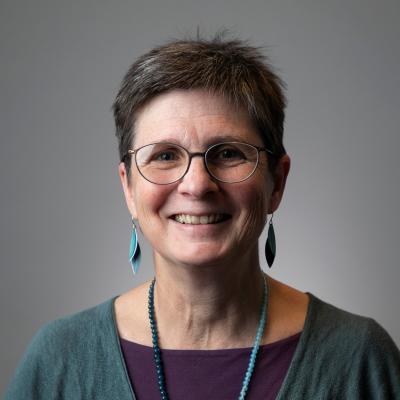Can the voluntary and community sector lead the change we need in health and care?
19 February 2018

In the UK, nearly one in five people today are aged 65 or over. In places like Somerset, this number will be one in four within the next few years. Many older people live with chronic conditions, and, increasingly, with several of them. Our need to get to grips with the reality of our ageing population and understand how our systems best adjust has never been greater.
This is why the Health Foundation and Guy’s and St Thomas’ Charity have supported the Richmond Group of Charities and New Philanthropy Capital to take a deep look into what happened when individuals and organisations came together to improve care for people with long-term conditions in Somerset. Their work focused on moving towards more integrated person-centred models of health and care, this time with the voluntary and community sector (VCS) taking the lead.
Cross-sector collaborations in health and care services are not easy or new, but usually these initiatives are top-down and led by statutory services.
The work in Somerset provides an important opportunity to understand, from practical experience, what role the largely untapped voluntary and community sector can and should play in building collaborations to transform health and care services.
In part, the new Tapping the potential report demonstrates what previous work hinted at: the VCS can combine both agility and stability in an ever-changing health care landscape. VCS organisations often have deep roots in the places where they are based. They build strong relationships and trust with their local communities, because they can connect local assets and be responsive to local needs. After all, they are part of the community.
But the report goes further, pointing to the benefits of working in a particular place – with its embedded relationships, resources and dynamics. Place-based work is shown to help coordinate disparate actors and agendas and make possible depth, and not just breadth, of relationships. Importantly, much of the learning can apply anywhere, from Bradford to Brixton.
The report also highlights that meaningful and sustainable cross-sector collaboration will not happen overnight. It needs to be nurtured and supported. Trust must come before real collaborative work can flourish. Local expertise must be validated and cherished.
The report is timely and of value to many. In the right hands, it will help those developing Integrated Care Systems, Sustainability and Transformation Partnerships, and those who are wondering about the place of voluntary organisations in the future of prevention and service delivery. It should bolster the confidence of the voluntary sector in its scope to lead transformation with local communities, and not just follow agendas set by others. It could also support the voluntary sector to hone its approach (and to avoid a few pitfalls). And it will be helpful for local health care ecosystems in the – often frustrating, always worthwhile – endeavour of collaborating among themselves and with national bodies.
The Health Foundation and Guy’s and St Thomas’ Charity have a few things in common. We are both interested in the wider determinants of health – the many factors that impact on people’s ability to keep well – and in the power of partnerships and collaboration to improve health and care for people. As independent foundations, we can take a long-term approach where others cannot. We can invest in new and bold ways of doing things that public purses would find difficult to support. And we can give brilliant people the headspace to reflect on the ideas, relationships and decisions that are helping them make a real difference.
The Somerset experience and its evaluation tell us that it is important to challenge established thinking about power and leadership – to turn it upside down, learn from what we see and share it.
The job is not yet finished. As we start unravelling the power of the voluntary and community sector in leading change, we want to learn more. We want to see further evidence of what it takes to genuinely deliver complex interventions. We want to see more places trying things out and sharing with others the impact of their collaboration – both on the people they set out to help in the first place and on the bottom line. And we want to see everyone who can play a role in improving people’s health coming together more often, listening better, learning from one another and putting forward more powerful new ideas – jointly.
Jo Bibby (@JoBibbyTHF) is Director of Healthy Lives Strategy at the Health Foundation
Kieron Boyle (@KieronJBoyle) is Chief Executive of Guy’s and St Thomas’ Charity
Work with us
We look for talented and passionate individuals as everyone at the Health Foundation has an important role to play.
View current vacanciesThe Q community
Q is an initiative connecting people with improvement expertise across the UK.
Find out more

